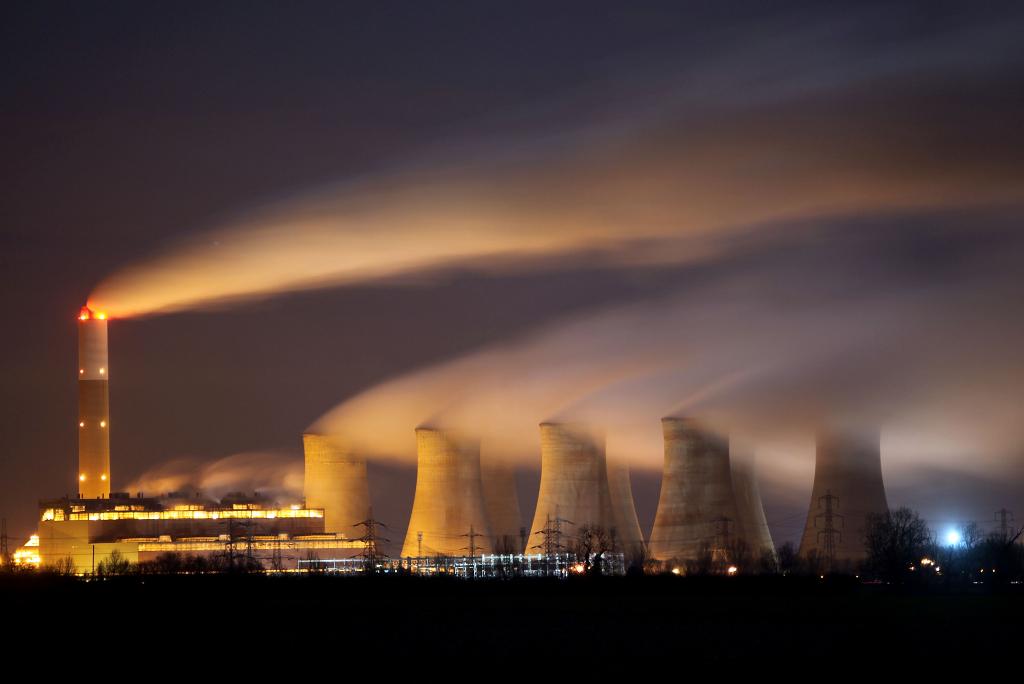Doha climate talks produce more hot air
Failure to agree on a new deal this year will probably result in a rise in emissions.
DOHA, Qatar — The latest round of UN climate change talks will probably be remembered as the final resting place of the Kyoto protocol on climate change, done in by longstanding financial woes and a lack of engagement by the United States.
As negotiators here grappled with developing a new framework to go into effect by 2020, the talks wound down with no agreement on the key issues of financing and carbon permits, amid an atmosphere of disappointment and acrimony.
Climate talks usually drag on beyond their scheduled end, in hopes of a last-minute breakthrough. The Doha round is no exception, but negotiators are not optimistic.
The selection of Qatar as the host site for this year’s installment of the annual talks may have been their strangest aspect. The small, Middle Eastern peninsula has the highest per-capita greenhouse gas emissions in the world, having become rich exporting the fossil fuels scientists blame as the main culprits for climate change.
Eager to host the meetings with an eye toward promoting Qatar as a destination for major conferences, however, the country won an aggressive battle to hold the talks against South Korea.
The massive new Qatar National Convention Centre drew rave reviews, together with a Qatari “paperless” initiative that included distribution of documents on free flash drives. Organizers say they helped save 92 percent of the paper used for last year’s meeting — 2 million sheets of paper, or 250 trees.
However, none of that translated into progress on the negotiating floor, where the Qataris drew fire for failing to show leadership of the floundering proceedings.
The main prize is a new, universal agreement on reducing emissions that would be finalized in 2015 and include some form of participation from all countries.
Former US President George W. Bush abandoned the Kyoto treaty in 2001, and the process never recovered from the withdrawal of the world’s largest economy.
After Hurricane Sandy brought the effects of climate change into the spotlight by battering the United States in late October, however, international hopes surged that the Americans would arrive in Doha prepared to engage.
In his first post-election news conference, President Barack Obama said Americans should expect to “hear more from me in the coming months and years about how we can… move this [climate change] agenda forward.”
But US climate envoy Todd Stern quickly tempered expectations, warning on his first day in Doha that there was “no change in tone” in Washington.
His stance prompted angry reactions from many corners.
“The reality is that the U.S. negotiators here have become nothing more than a stumbling block,” Greenpeace International director Kumi Naidoo said.
Together with criticism of US inaction, finance issues have become a standard part of the climate process.
In Copenhagen in 2009, negotiators agreed to create a Green Climate Fund that would raise at least $100 billion per year by 2020 to help poor countries adapt to the impact of climate change. This year, the most vulnerable countries called for at least $60 billion to be available by 2015.
However, it’s far from clear how the target will be met. Amid the global economic crisis, no wealthy countries have made significant pledges to the fund so far and none of the “innovative” sources of funding discussed since 2009 are ready to go into force.
“What we are missing here is political will,” said Pa Ousman, a representative from the bloc of least developed countries. “There is no point for us to have celebrated the promises made if the promises are not kept.”
The Kyoto protocol commits a dwindling number of wealthy countries into cutting emissions and helping poor countries develop clean energy. The current list has been reduced to just Europe and Australia, together responsible for just 14 percent of the world’s greenhouse gas emissions.
The new system will require rich and poor countries to share the effort.
But it’s far from clear how that will happen. Under the Kyoto protocol, countries were assigned free carbon permits to allow industries to pollute. But assigning the “hot air” permits financial values for trading — making some countries unwilling to reduce them — has undercut the drive to cut emissions further.
Failure to agree on a new deal this year will probably result in a rise in emissions.
More from GlobalPost: Want to fly to the moon? Here's your chance
The talks were scheduled to conclude Friday night, but official closings of climate change talks are rarely respected. Meetings usually drag on in hopes of forcing last-minute progress from weary delegates. Asked by one representative to break up the plenary sessions for group discussions this year, the talks’ Qatari president said, “I can sit here all year. You decide when to leave.”
Last year’s negotiations in South Africa stretched into the third day after the scheduled close. In Doha, security and service personnel have already said they were told they should plan to stay on until Saturday at least.
Our coverage reaches millions each week, but only a small fraction of listeners contribute to sustain our program. We still need 224 more people to donate $100 or $10/monthly to unlock our $67,000 match. Will you help us get there today?
